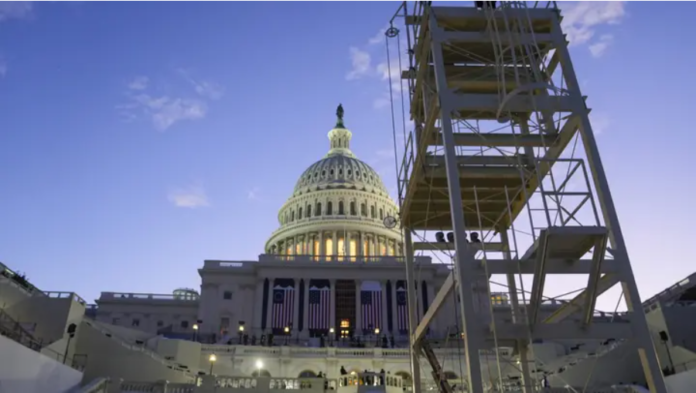Ahead of President-elect Trump’s swearing-in ceremony on January 20, 2025, law enforcement agencies are on high alert for potential lone wolf attacks as thousands of spectators converge on the U.S. Capitol. The ceremony, originally planned for the outdoors, will now take place indoors due to extremely cold weather. Law enforcement experts, including Sergeant Matthew Fagiana, a retired patrol commander with over 25 years of experience, emphasize the unpredictability of lone wolf attackers, who are often driven by extremist ideologies.
A recent incident heightened concerns when a machete-wielding suspect tried to bypass security at a previous event where Trump paid respects to former President Jimmy Carter. The suspect, who had been granted conditional pre-trial release just days before the inauguration, raised further alarm about potential threats.
Fagiana explained that law enforcement personnel, including the Secret Service, Metropolitan Police, and state troopers, will be watching for any suspicious activity or unusual behavior. Key warning signs for potential lone actors include nervous body language, such as fidgeting or loitering in restricted areas, and involuntary physical reactions like excessive sweating, even in cold temperatures. Additionally, authorities are trained to observe individuals wearing clothing that doesn’t match the season, such as heavy coats in warmer months.
The move of key events, including Trump’s swearing-in ceremony, indoors will help provide a controlled environment for law enforcement, making it easier to ensure safety. However, Fagiana also highlighted the importance of public cooperation. He urged the public to stay aware of their surroundings, trust their instincts, and report any suspicious activity to nearby officers. By practicing situational awareness, citizens can assist in maintaining safety during high-profile events.
The U.S. Capitol Police also reminded the public of prohibited items on Capitol grounds, emphasizing the importance of following security protocols to avoid delays and ensure the safety of all attendees.





